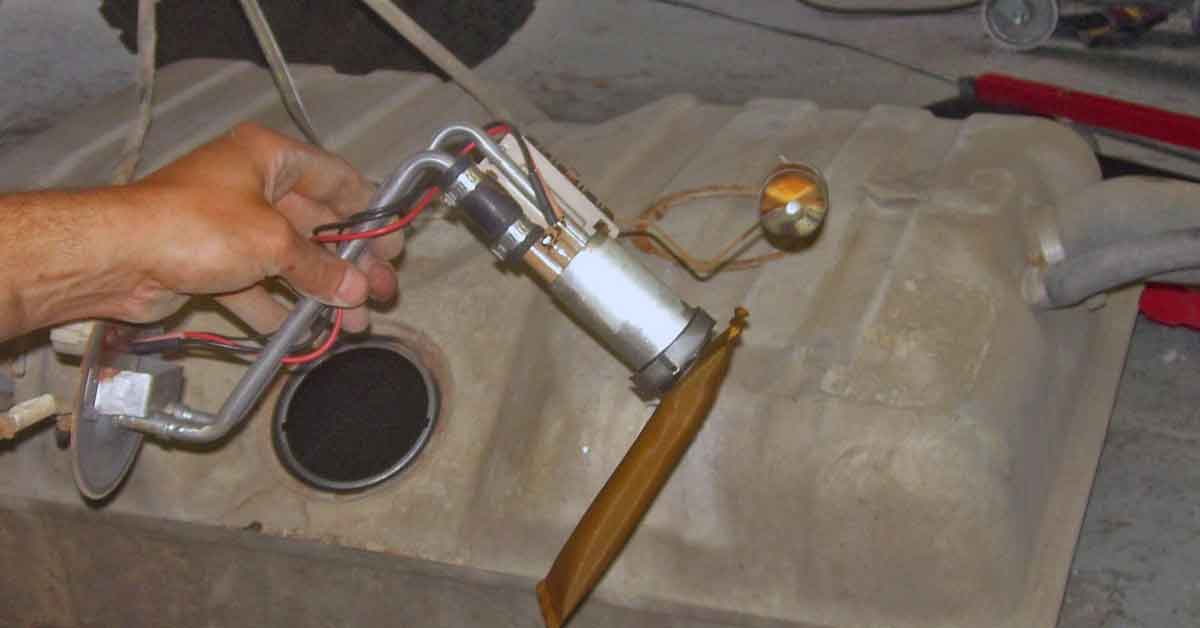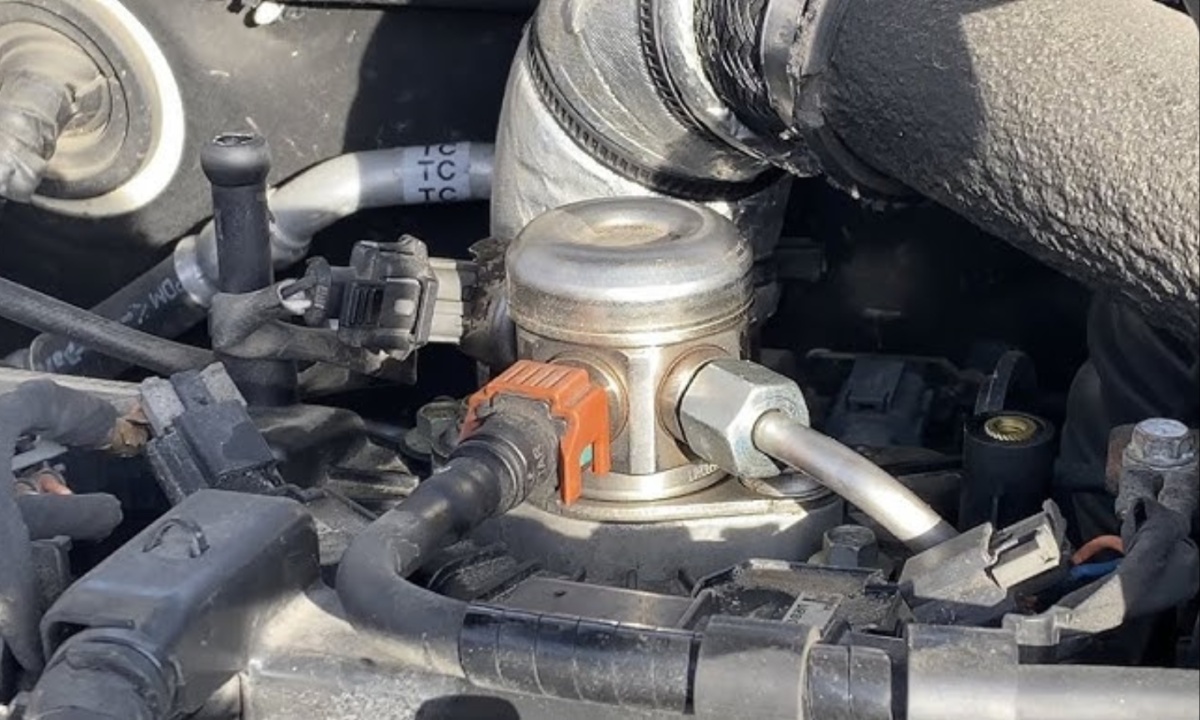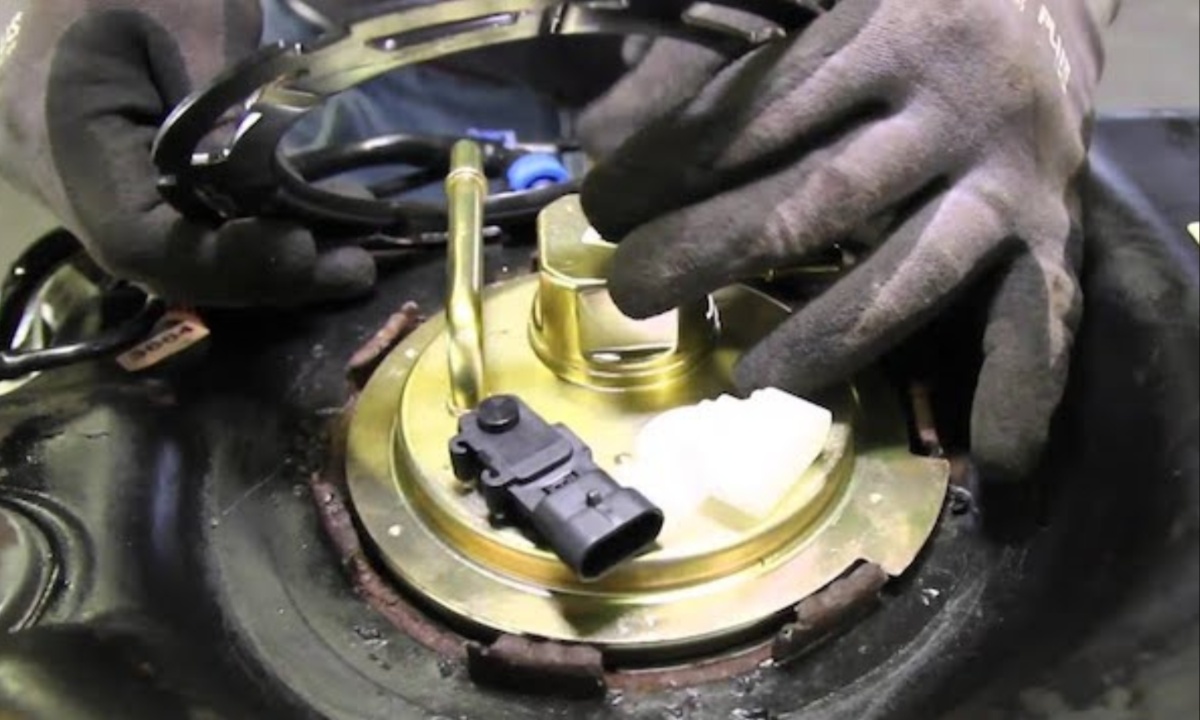Being a car owner comes with its fair share of worries, and one of the most stressful scenarios is dealing with a vehicle that refuses to start. Many factors could cause a car to not start, but one of the most frequent culprits is a malfunctioning fuel pump. This essential component is responsible for delivering fuel from the tank to the engine, and if it’s compromised, your car may not start or experience a variety of performance issues.
Let’s explore the common causes of fuel pump problems, the signs that indicate your fuel pump may be failing, and the steps you can take to resolve these issues and restore your vehicle’s performance.

The Top 5 Fuel Pump Problems You Should Know About
1. Complete Fuel Pump Failure
One of the most critical issues you can face with a fuel pump is a complete failure. Over time, fuel pumps can become worn out, suffer from internal damage, or overheat due to malfunctioning components within the fuel system. When the fuel pump fails entirely, your vehicle will not start, because the engine cannot receive the fuel it needs to run. Fuel pumps typically fail gradually, but they can also fail suddenly without warning. If you find yourself in a situation where your car refuses to start, the fuel pump might be the issue. Repair costs for a new fuel pump can vary significantly depending on the make and model of your vehicle, so it’s always good to be prepared for the expense.
2. Clogged Fuel Filter
Fuel filters are responsible for filtering out contaminants in the fuel before it reaches the engine. Unfortunately, over time, these filters can become clogged with dirt, debris, and sediment from the fuel tank. When the fuel filter becomes obstructed, it restricts the flow of fuel, which can make the fuel pump work harder and potentially lead to its failure. A clogged fuel filter can cause a range of issues, including poor engine performance and difficulty starting. It’s essential to replace or clean the fuel filter regularly—usually every 30,000 miles or two years—to keep the fuel system running smoothly.
3. Fuel Pump Relay Failure
A fuel pump relies on the electrical system to power it, which is where the fuel pump relay comes into play. This relay acts as a switch that allows power from the battery to reach the fuel pump when you turn the ignition key. If the fuel pump relay becomes damaged or fails, the fuel pump will not receive the necessary power to operate, and the car will not start. Fortunately, checking and replacing a faulty relay is relatively simple and inexpensive compared to other fuel system repairs.
4. Electrical Problems Within the Fuel System
The fuel system in your vehicle is an intricate network of mechanical and electrical components. This complexity makes the system vulnerable to electrical issues. Damaged or corroded wiring, burnt fuses, or loose connections can disrupt the power supply to the fuel pump or other essential components of the fuel system. Identifying and diagnosing electrical problems can be tricky, so if you suspect an electrical fault, it’s a good idea to consult a professional mechanic who can pinpoint the exact cause of the issue.
5. Low Fuel Pressure
Your vehicle’s engine requires a specific fuel pressure to perform optimally. When there’s low fuel pressure, the engine can experience poor performance, rough idling, or even stalling. Low fuel pressure can be the result of a failing fuel pump, a clogged fuel filter, or problems with the fuel injectors. If your vehicle is running poorly, checking the fuel pressure should be one of the first diagnostic steps to determine the underlying cause.

Symptoms of Fuel Pump Problems: How to Tell If Your Fuel System Needs Attention
A failing fuel pump can manifest in several ways, from a rough-running engine to a complete failure to start. Recognizing the symptoms of fuel pump problems early can help you address the issue before it leads to a more serious and costly breakdown.
Engine Sputters at High Speeds
When your engine sputters at high speeds, it usually indicates a fuel delivery issue. The engine requires a steady supply of fuel to maintain smooth operation, particularly at high speeds. If the fuel pump starts to fail and cannot provide enough fuel, the engine will struggle to maintain power, leading to a sputtering or stalling sensation. This issue often becomes more noticeable when you accelerate or drive at highway speeds.
Loss of Power During Acceleration
A weakened or malfunctioning fuel pump may cause your car to feel underpowered when you try to accelerate. If you step on the gas pedal to pass another car or gain speed and feel a significant loss of power, the fuel pump may not be supplying enough fuel to the engine. This issue could also be linked to clogged fuel injectors or other fuel-related problems, so it’s crucial to have a mechanic inspect your vehicle to determine the exact cause.
Difficulty Starting the Engine
If your car takes longer than usual to start, the fuel pump could be the cause. A failing fuel pump may struggle to deliver enough fuel to the engine, leading to hard starts or no starts at all. If your car starts but hesitates or takes longer than normal, it’s worth checking the fuel pump to see if it needs replacing.
Unusual Noises from the Fuel Tank
When you turn your key to the “ON” position before starting the engine, you might hear a faint buzzing sound coming from the fuel tank. This is the fuel pump working to prime the fuel system. However, if you hear a whining, grinding, or continuous buzzing sound, it could indicate that the fuel pump is malfunctioning. If you notice any unusual sounds from the fuel tank, it’s best to have the car towed to a professional mechanic for a thorough diagnosis to prevent further damage.
How to Address Fuel Pump Issues: Practical Solutions
If your fuel pump is causing problems, addressing it promptly can save you time, money, and frustration. Here are some potential solutions for dealing with fuel pump-related issues:
Replace a Faulty Fuel Pump
If your fuel pump has failed entirely, replacing it is your only option. This repair typically requires removing the fuel tank to access the pump, making it a job best left to professionals. Depending on your vehicle’s make and model, the cost of replacing the fuel pump can range from $1,000 to $1,600. It’s crucial to have this repair done correctly to avoid causing further damage to your fuel system.
Clean or Replace the Fuel Filter
If the fuel filter is clogged, either cleaning or replacing it can help restore proper fuel flow to the engine. If the filter is relatively new, you can try cleaning it using compressed air to blow out any debris. However, if the filter is old or heavily clogged, replacing it entirely is the best solution. Replacing a fuel filter is a straightforward DIY repair that most car owners can handle with the right tools.
Check and Replace the Fuel Pump Relay
The fuel pump relay is one of the most accessible and affordable components to replace when troubleshooting fuel system issues. If your fuel pump isn’t receiving power, check the relay to see if it’s functioning correctly. If it’s damaged, replacing it can be a quick and easy fix.
How to Maintain Your Fuel System and Avoid Future Problems
Taking care of your fuel pump and fuel system is essential to prevent future issues and ensure your car runs smoothly. Here are some tips to help extend the lifespan of your fuel system:
Keep Your Fuel Tank Above ¼ Full
Maintaining a fuel level above a quarter tank can help keep the fuel pump cool, as the fuel helps lubricate the pump. If you let the tank run too low, the pump may overheat, leading to premature failure.
Replace the Fuel Filter Regularly
Just like other filters in your vehicle, the fuel filter should be replaced at regular intervals. Most experts recommend changing the filter every 30,000 miles or two years to prevent clogs and maintain optimal fuel flow.
Use Quality Fuel
Always fill your vehicle with gasoline from reputable stations to avoid contaminants that can damage your fuel system. Low-quality fuel may contain water or debris that can clog your fuel pump and injectors.
Use Fuel Additives
Fuel additives can help clean your fuel system by removing carbon deposits and preventing clogs in the injectors and fuel lines. Using these additives regularly can help maintain your vehicle’s performance and keep your fuel system in good condition.
The Importance of Regular Maintenance
Routine maintenance is key to extending the life of your fuel system and preventing costly repairs down the road. By addressing small issues before they escalate, you can save money and avoid major breakdowns. Keep an eye on the health of your fuel system, and take action at the first sign of trouble to ensure your vehicle stays on the road for years to come.
How Endurance Can Help With Fuel Pump Issues
If your car is facing a costly fuel pump repair, having an extended warranty can offer peace of mind. Endurance provides a range of extended warranty plans that cover fuel system components, including the fuel pump. With comprehensive protection, you can avoid unexpected repair bills and get back on the road faster.
Endurance plans also include valuable benefits, such as 24/7 roadside assistance, key fob replacements, and tire coverage. With a range of coverage options, you can choose the plan that fits your budget and needs, ensuring that you’re protected when fuel-related issues arise.

